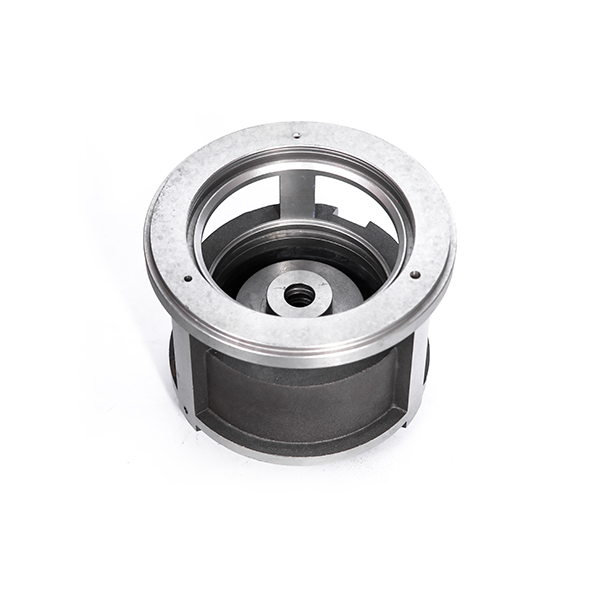Mobile:+86-311-808-126-83
Email:info@ydcastings.com
Optimizing Dispersion with Blade Impellers in Liquid Mixing Applications for Enhanced Performance
The Role of Dispersion Blade Impellers in Modern Mixing Technologies
In various industrial processes, especially in the chemical, pharmaceutical, and food industries, the efficient mixing of materials is paramount to achieving desired product quality and consistency. Among the myriad of mixing technologies available, the dispersion blade impeller has emerged as a crucial component in the design and functionality of mixing equipment. This article explores the significance, design, and applications of dispersion blade impellers in modern mixing processes.
Understanding Dispersion Blade Impellers
Dispersion blade impellers are specialized mixing devices designed to uniformly blend and disperse materials with varying viscosities and densities. Unlike conventional impellers that may focus on either mixing or pumping fluids, dispersion blades are engineered to facilitate both functions. Their unique design features enhanced blade geometry, which allows for effective shearing and dispersing of particulates or immiscible fluids.
Typically constructed from high-grade materials to withstand harsh processing conditions, dispersion blades can be found in various configurations, including radial and axial designs. The choice of design influences the flow characteristics and mixing efficiency. For instance, radial dispersion blades effectively create turbulence and promote the mixing of different phases, making them ideal for applications that require high shear rates.
Applications of Dispersion Blade Impellers
Dispersion blade impellers find their applications in numerous sectors. In the pharmaceutical industry, they are essential for producing emulsions and suspensions where uniform particle distribution is crucial. The ability of these impellers to create intense agitation allows for the effective mixing of active ingredients with excipients, ensuring a consistent dosage form.
In the food processing industry, dispersion blades play a significant role in the homogenization of products such as sauces and dressings. The need for a stable mixture without separation over time is a critical quality requirement for food products, and dispersion blade impellers excel at achieving this stability. Additionally, they are used in the production of dairy products, where the dispersion of fat globules is vital for product quality.
Similarly, in the cosmetics and personal care industry, dispersion blade impellers are used to mix and stabilize emulsions, which are common in creams and lotions. The effective dispersion achieved through the use of these impellers ensures that the final product meets aesthetic and functional standards.
dispersion blade impeller

Key Benefits
1. Enhanced Mixing Efficiency Dispersion blade impellers are designed to generate high shear forces, which promote uniform mixing. This reduces the time needed for mixing processes and enhances overall production efficiency.
2. Versatility These impellers can handle a wide range of materials, from lightweight liquids to high-viscosity slurries. Their adaptability makes them suitable for various applications across different industries.
3. Quality Control By ensuring that materials are thoroughly mixed and dispersed, these impellers help maintain consistent product quality. This is crucial in regulated industries such as pharmaceuticals and food processing, where product consistency is linked to safety and efficacy.
4. Improved Product Stability The ability of dispersion blade impellers to create fine emulsions and suspensions contributes to the stability of products over time, reducing the likelihood of separation and spoilage.
Challenges and Considerations
While dispersion blade impellers offer numerous advantages, they are not without challenges. The design selection must be tailored to the specific materials and process requirements, as using an inappropriate impeller type can lead to ineffective mixing or excessive energy consumption. Additionally, ongoing maintenance is required to prevent wear and tear, especially in high-usage environments.
Conclusion
Dispersion blade impellers play a vital role in modern mixing processes across various industries. Their unique design facilitates efficient mixing and dispersion, ensuring product quality and consistency. As industries continue to evolve and demand higher efficiency and standardization, the significance of dispersion blade impellers in engineering reliable and effective mixing solutions cannot be overstated. Understanding their functionality and applications will help manufacturers make informed decisions, leading to improved production processes and enhanced product offerings.
-
Why Should You Invest in Superior Pump Castings for Your Equipment?NewsJun.09,2025
-
Unlock Performance Potential with Stainless Impellers and Aluminum End CapsNewsJun.09,2025
-
Revolutionize Your Machinery with Superior Cast Iron and Aluminum ComponentsNewsJun.09,2025
-
Revolutionize Fluid Dynamics with Premium Pump ComponentsNewsJun.09,2025
-
Optimizing Industrial Systems with Essential Valve ComponentsNewsJun.09,2025
-
Elevate Grid Efficiency with High-Precision Power CastingsNewsJun.09,2025











